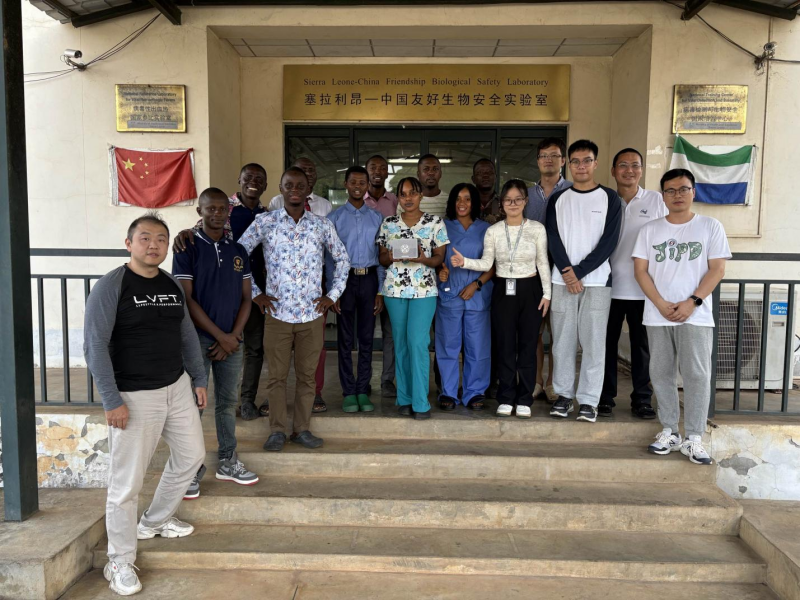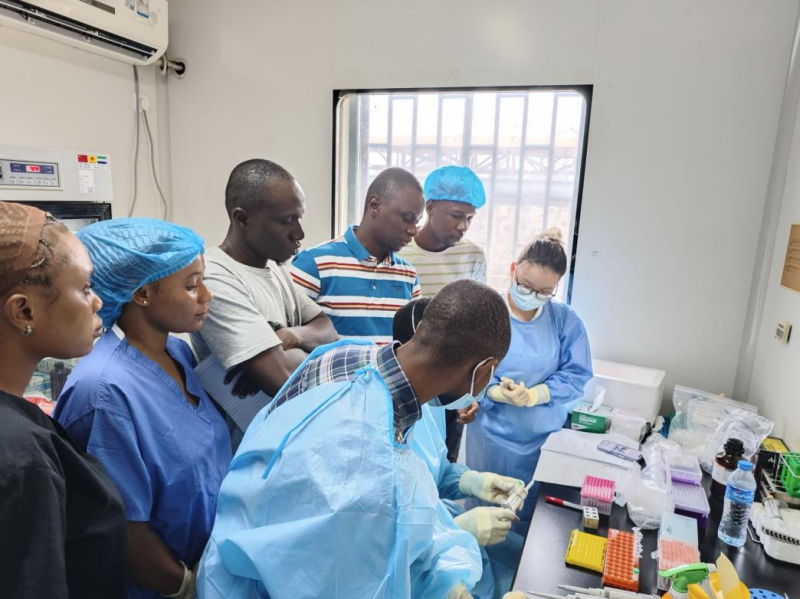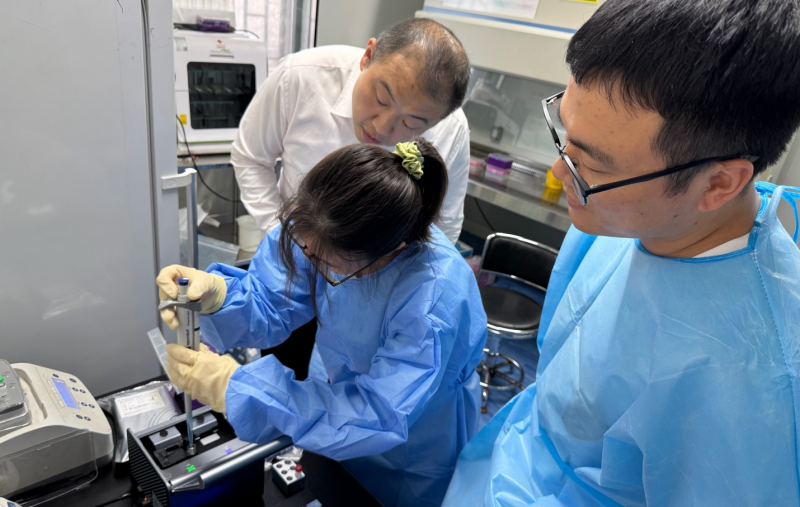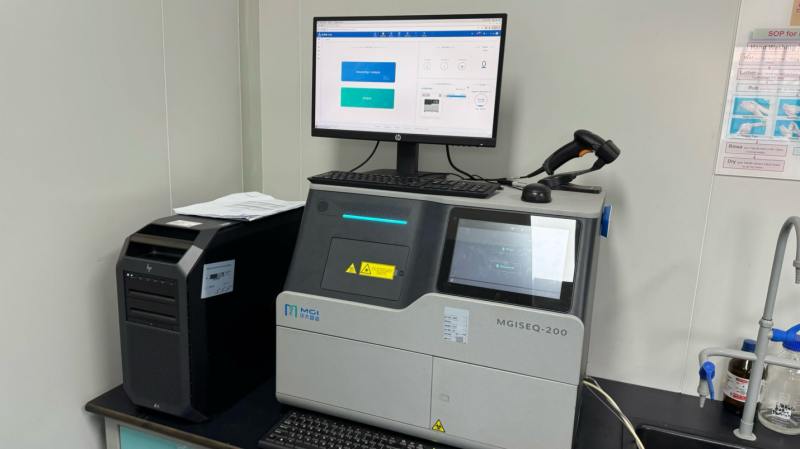From November 20 to December 19, 2024, the Chinese Center for Disease Control and Prevention (China CDC), in collaboration with BGI-Research and other partners, successfully carried out a project in Sierra Leone to enhance malaria genomic surveillance.
 Malaria genomic surveillance team members from the Chinese Center for Disease Control and Prevention (China CDC), BGI-Research and other partners, together with local technicians from Sierra Leone.
Malaria genomic surveillance team members from the Chinese Center for Disease Control and Prevention (China CDC), BGI-Research and other partners, together with local technicians from Sierra Leone.
The team conducted long-read and short-read sequencing of Plasmodium DNA using cutting-edge platforms, including the CycloneSEQ sequencer , DNBSEQ-G50 (MGISEQ-200) sequencer, and a malaria all-in-one bioinformatic workstation and performed training of local technicians. This effort significantly advanced malaria molecular monitoring capabilities in Africa.
Since 2020, with support from the Bill & Melinda Gates Foundation, China CDC has collaborated with China national and Sierra Leonean public health institutions to build capacity for malaria molecular surveillance. As part of this initiative, BGI-Research undertook the development, deployment, and training for an integrated malaria all-in-one bioinformatic workstation.
During this recent collaboration, BGI-Research scientists worked closely with local staff at the Sierra Leone-China Friendship Biosafety Laboratory (SLE-CHN Biosafety Lab) to complete end-to-end workflows for malaria monitoring. This included nucleic acid extraction, library preparation, short- and long-read sequencing, and comprehensive bioinformatics training. Local technicians received hands-on training throughout the process, ensuring that the skills and knowledge required for malaria genomic surveillance are established within Sierra Leonean teams.
 Training session for local technicians in Sierra Leone.
Training session for local technicians in Sierra Leone.
Given the limitations of unstable network connectivity and frequent power outages in Sierra Leone, the team adopted an innovative "long-read-first" sequencing strategy. Using the CycloneSEQ-WT02 nanopore sequencer, the team completed library preparation to sequencing in just six hours, enabling rapid detection of resistant genes mutations in Plasmodium genomes. To further expand sequencing coverage and depth, the DNBSEQ-G50 (MGISEQ-200) platform was employed for short-read sequencing.
 A surveillance team member performs sequencing using the CycloneSEQ-WT02 nanopore sequencer.
A surveillance team member performs sequencing using the CycloneSEQ-WT02 nanopore sequencer.
The bioinformatics analysis was powered by a bioinformatic framework developed by BGI-Research, incorporating MegaBOLT accelerated computing technology. This integrated system reduced the complexity of analyzing sequencing data, providing an intuitive interface for tasks such as whole-genome variant annotation and microbial identification. The solution significantly enhanced the laboratory’s analytical efficiency and capacity for malaria genomic research.
 The MegaBOLT malaria bioinformatics workstation deployed in Sierra Leone.
The MegaBOLT malaria bioinformatics workstation deployed in Sierra Leone.
“This project demonstrates BGI’s commitment to global public health capacity building. We aim to bring BGI’s high-throughput sequencing platforms to more countries in need of pathogen surveillance, contributing to the global fight against infectious diseases,” said Dr. Daxi Wang, Director of the Infectious Omics Research Center at BGI-Research.
Dr. Xiaopeng Qi, Director of the Center for Global Public Health at China CDC, emphasized the broader implications of the project, “This initiative not only strengthens Sierra Leone’s technical capabilities in malaria molecular surveillance but also provides a replicable model for other malaria-endemic countries.”
The partnership between China CDC, BGI-Research, and Sierra Leonean institutions reflects a shared commitment to addressing global health challenges. By leveraging advanced sequencing technologies, fostering knowledge transfer, and equipping local technicians with the necessary skills, the teams are helping to establish sustainable molecular surveillance systems in malaria-endemic regions.



